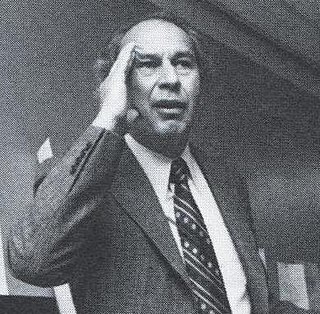A Quote by Abraham Lincoln
Talk to the jury as though your client's fate depends on every word you utter.
Related Quotes
The receptive attitude enables one mind to fix itself to another as by spiritual grappling-irons. When you see that every word you utter us taken in, and weighed, and measured by your listener, you cannot free yourself from the influence of his presence. You are compelled to have in your thoughts not only the words you utter, but the man to whom they are spoken. You must not only talk, and talk well, but you must talk to him.
Never talk to a client about architecture. Talk to him about his children. That is simply good politics. He will not understand what you have to say about architecture most of the time. An architect of ability should be able to tell a client what he wants. Most of the time a client never knows what he wants.
If you are blessed with great fortunes. . . you may love your fate. But your fate never guarantees the security of those great fortunes. As soon as you realize your helplessness at the mercy of your fate, you are again in despair. Thus the hatred of fate can be generated not only by misfortunes, but also by great fortunes. Your hatred of fate is at the same time your hatred of your self. You hate your self for being so helpless under the crushing power of fate.
On a certain level, we don't try enough cases. We should try more cases before juries and let jurors decide. On grand juries, my position is the grand jury should be eliminated, but there are creative ways a lawyer can use a grand jury if they have a client with a sympathetic cause who has been wronged by the police.
For a lawyer to do less than his utmost is, I strongly feel, a betrayal of his client. Though in criminal trials one tends to focus on the defense attorney and his client the accused, the prosecutor is also a lawyer, and he too has a client: the People. And the People are equally entitled to their day in court, to a fair and impartial trial, and to justice.
I believed there was enough evidence to go to trial. Grand jury said there wasn't. Okay, fine. Do I have a right to disagree with the grand jury? Many Americans believe O.J. Simpson was guilty. A jury said he wasn't. So I have as much right to question a jury as they do. Does it make somebody a racist? No! They just disagreed with the jury. So did I.
A lawyer once told a jury that the person his client stood accused of having killed was about to walk through the courtroom door. When the jurors looked startled, the lawyer asserted that if those jurors had wondered, even for one second that the victim might appear, that belief constituted enough reasonable doubt for them to find his client innocent.

































